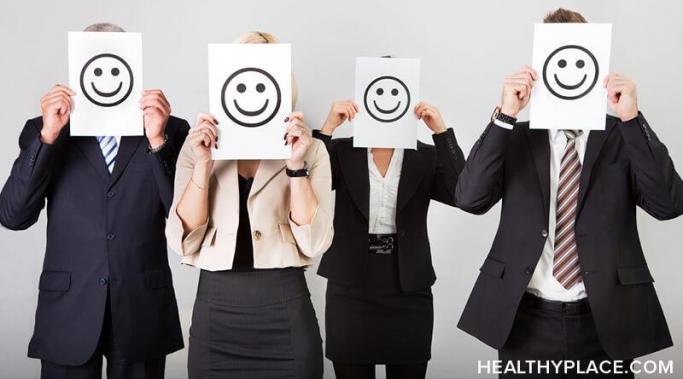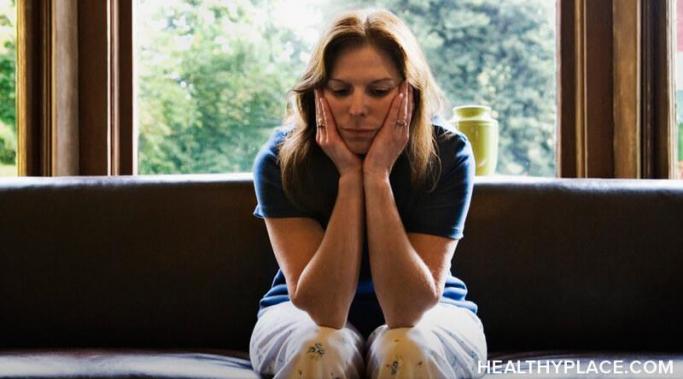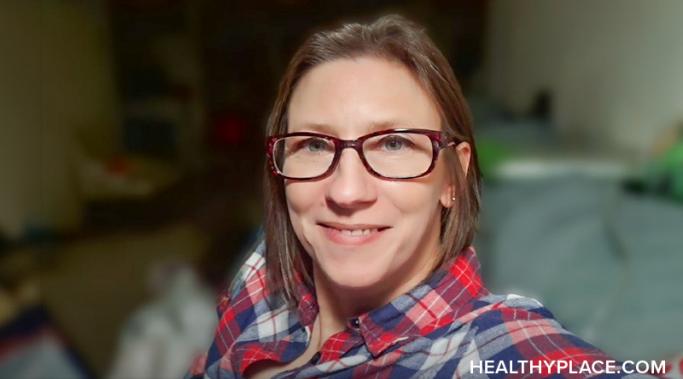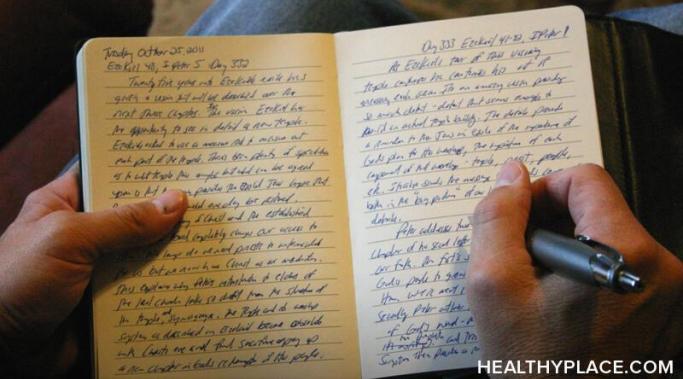I currently work full-time from home. Like many others, I spend more time in front of the computer and on the phone with strangers than with loved ones. Once I clock out, I am so drained that I don't want to talk to anyone. My social battery is empty. Yet, the next day, I put on that smiling face and log back in to start the cycle again. Working takes up so much of my time and energy that there have been many times when working can trigger a depressive episode. Or, if I am already depressed, work can make my sadness even worse without specific ways to cope.
Coping with Depression
I live with major depressive disorder. Much like any diagnosis, disability, disorder, illness, and so on, there is a politically correct way to discuss those who have a mental health disorder. Through my research and curriculum development at my job, I learned that the people-first language for mental health uses the phrase "living with." For example, I would say that I am living with major depressive disorder, not that I suffer from major depressive disorder. This is a more appropriate way to describe ourselves and others.
Masking depression is something many people do. I tell people when I discuss living with major depressive disorder that I am the queen of masks. And it's true; I can smile when I need to. I became such a perfectionist at masking my depression that I could even fool my closest friends. Yet, when I am alone or turn around, my smile disappears from my face quicker than a scared jackrabbit.
Looking for a new job is never easy, but depression while job hunting is even worse. Being unemployed at the same time is terrible, too. Unfortunately, I have experienced that in the last couple of years. Getting lost in the cumbersome tasks of revamping my resume and applying for jobs is dispiriting. Thus, it becomes easy for job hunting to cause my depression to set in quickly.
As children grow up, they eventually leave the family nest to pursue their dreams and aspirations, and that empty nest can encourage depression. Whether they go to college, explore the world, or start a new job, it may be a challenging and emotional step for parents. Therefore, by preparing for the empty nest chapter of life, parents can be proactive in not letting depression set in for an extended period. For me, the empty nest phase is creeping up quickly, and I am unprepared.
I am an introvert who is coping with depression. Being introverted is a personality trait where I thrive on independence and recharge mentally when alone. I can also become emotionally drained when I'm in social settings, including at work. So, how am I, as an introvert, supposed to reach out for help and not become entirely isolated when I'm experiencing an episode of depression? Even though it has been difficult, within the last year, I have come up with some ways of coping with my depression that do not emotionally drain me but allow me not to become isolated.
My name is Dawn Gressard, and I am ecstatic to be a new writer for the "Coping with Depression" blog at HealthyPlace. As a trainer of peer support specialists, I know how vital it is to share similar lived experiences with others, not only for our coping with depression and recovery but for others’ coping as well. It is always easier to endure the journey when you know you are not alone -- and none of us are.
In my final post for the "Coping with Depression" blog, I’d like to wish you all a sincere farewell and offer a few lessons I’ve learned over the last six months.
Mood journaling for people with depression, which simply means keeping a log of your moods, has many benefits. The act of transferring your feelings to paper can be therapeutic, taking bottled-up emotions out of your head and lightening your emotional load. Practicing writing your feelings down can help you better communicate them to your friends, family, or therapist. And looking back through your depression mood journal entries can help you identify trends, triggers, and possible treatments.
Have you tried to fix someone's mental illness? When we see others struggling with mental illness, we often get the urge to help. But for most of us, we aren’t equipped to treat their disease—and trying to can negatively impact our mental health. Sometimes we have to let go and accept that we can’t fix someone else’s mental illness.









